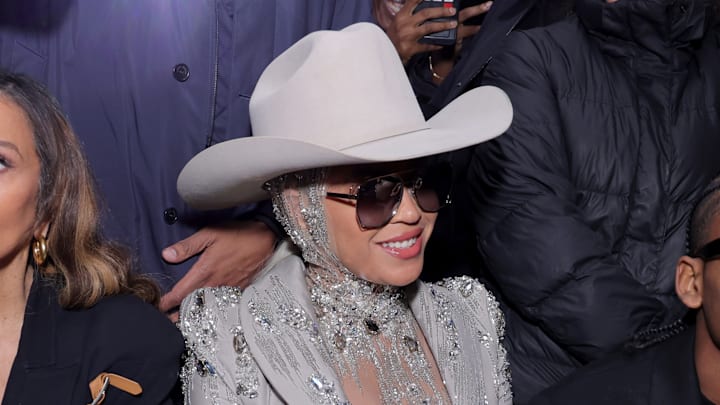Beyoncé is a bona fide pop star who has proven she is versatile enough musically to do hip-hop, pop, rock-leaning, and country-leaning music. She does not want to be hemmed in by a label and that makes sense. She is from Houston, a city with far too many quality musical artists of all genres to simply say, "Houston is a country town," or "Houston is a blues town."
Queen Bee's latest foray into music is two country songs, "16 Carriages" and "Texas Hold 'Em." The latter song hit number one on the Billboard Country Hot 100 chart last week. By doing so, Beyoncé became the first African-American woman to top the country charts. At the same time, some radio stations, such as KYKC in Oklahoma refused to play the sound because the song did not seem "country" enough.
To be completely honest, I am not a fan of country music because of its racial overtones and it is naturally limited musically. Queen Bee's single is a great example. If someone did not know who was singing the song, that person might call "Texas Hold 'Em" a country song because it is, in fact, one. But let's not lie to ourselves and think KYKC did not play the song because of how it sounded; they simply did not want black musical artists to have a big-selling country song.
Beyoncé has broken through but will the industry let others do the same?
The truth is that many people can probably name a black country singer, such as Charley Pride and Kane Brown, because they stand out from 99 percent of the rest of their genre of music. That is not right. A country musical artist should be different from the rest of their ilk because of the quality of the music they make. And just because I do not like the genre necessarily does not mean the music is not good. Musical taste is personal.
But that is part of the historical issue with country music. Many people might recognize Charley Pride as different from other artists not because he is good at his music (which, to be fair, he was as good as other top-selling country artists for most of his career) but because of the color of his skin. That does not happen in pop, rock, or jazz. Why? Because there has been racial diversity in those genres for much longer and that was allowed to happen.
Country music for decades certainly tried to cap musicians of color. In the 1920s, when country music was mostly still known as hillbilly music, Lesley Riddle and Rufus Payne were creating music that would inspire the music made by the Carter Family and Hank Williams. But ask most music fans which they have heard of more Williams or Riddle. Williams was packaged and sold to audiences while Riddle was not given much of a chance.
Country music labels seemingly would rather keep the stereotype alive: The women need to be stereotypically attractive to the general public (whether what we are sold as stereotypically attractive is true or not), and the men need to have a drawl and play guitar. In both cases, white appears to be the color most needed. So while Beyoncé has broken somewhat through the glass ceiling of color instead of gender, that might not have happened had she been nearly any other African-American performer.
Of important note, though, her success implies the music-buying public is more sophisticated than the record companies want to believe. Fans are buying Beyoncé's music whether radio stations refuse to play her or record companies want to produce country musicians who look like her. Thankfully for the genre, there are a number of worthy musical artists of color that should be popular country musicians as well. Hopefully, Beyoncé's success will help open doors wider that are just barely ajar now.
